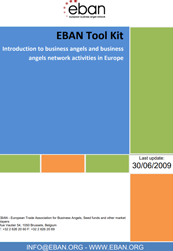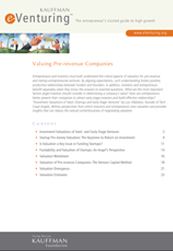According to Inc. most CEOs read one book a week and we understand why. Reading can be a pleasure and you probably know the feeling of “what next?” after turning the last page of a good book. Luckily, there is always another excellent read awaiting you. Besides our own articles and teaching materials, we have selected some of our favorite books* on angel investments and compiled them below. Let’s get into it.
*If you click on the picture of the book you can buy most of them directly via Amazon.
1. The Angel Investor’s Handbook
Gerald A. Benjamin; Joel Margulis.
The Angel Investor’s Handbook: How to Profit from Early-Stage Investing.
New York: Bloomberg Press; 2001.
ISBN 978-1-57660-076-4.
The book from Gerald A. Benjamin and Joel Margulis counts already as a classic of Angel Investing with it’s first release in 2001.It provides a very good overview of the whole early-stage investing life cycle.
2. How to become a business angel
Richard Hargreaves.
How To Become A Business Angel: Practical advice for aspiring investors in unquoted companies.
Petersfield: Harriman House; 2012.
ISBN 9780857191731.
“How To Become A Business Angel: Practical advice for aspiring investors in unquoted companies” by Richard Hargreaves also provides you with a good overview of the topic. It is written in an easy way and more focused on people who are new to the angel business.
3. Angel Investing: Matching Startup Funds with Startup Companies
Mark Van Osnabrugge; Robert J. Robinson.
Angel Investing: Matching Startup Funds with Startup Companies – The Guide for Entrepreneurs and Individual Investors.
San Francisco: Jossey-Bass; 2000.
ISBN 978-0-7879-5202-0.
In Angel Investing, Robinson and Van Osnabrugge use personal interviews, anecdotal evidence, and more than 300 research studies to show exactly who these financiers are, how they operate, and where they can be found. Robinson, an international management consultant, and Van Osnabrugge, an associate professor at Harvard Business School, also compare various financing options, explain precisely how angels and venture capitalists function differently, describe proven ways to attract them, and provide relevant resources.
4. The Startup Company Bible for Entrepreneurs
Michael Stathis.
The Startup Company Bible for Entrepreneurs: The Complete Guide For Building Successful Companies and Raising Venture Capital.
Apex VA Publishing; 2005.
ISBN 0-9755776-1-1.
The book offers the founders perspective on founding and funding a company. However, it also offers angels a good insight on what to consider of dealing with Startups.
5. The Power of Unfair Advantage
John L. Nesheim.
The Power of Unfair Advantage: How to Create It, Build it, and Use It to Maximum Effect.
New York: Free Press; 2005.
ISBN 0-7432-5605-0.
The second book on our list written out of the perspective of a founder with emphasise on the importance of branding and marketing.
6. Early Exits: Exit Strategies for Entrepreneurs and Angel Investors
Basil Peters.
Early Exits: Exit Strategies for Entrepreneurs and Angel Investors (But Maybe Not Venture Capitalists).
MeteorBytes Data Management;2009.
ISBN 978-0-9811855-1-4.
A books specialised on the most rewarding part of investing – the exit!
7. Angel Investing
David S. Rose.
Angel Investing: The gust Guide to Making Money & Having Fun Investing in Startups.
Hoboken, NJ: John Wiley & Sons; 2014.
ISBN 978-1-118-90121-2.
The book shows how smart investors with the right strategy and a long-term perspective can achieve annual returns of 25 percent or more from a well-designed angel portfolio.
8. Business Model Innovation: Concepts, Analysis and Cases
Allan Afuah.
Business Model Innovation: Concepts, Analysis, and Cases.
Abingdon: Routledge; 2014.
ISBN 978-0-203-58458-3.
Business Model Innovation explores the concepts, tools, and techniques that enable organizations to gain and/or maintain a competitive advantage in the face of technological innovation, globalization, and an increasingly knowledge-intensive economy. The book investigates how organizations can use innovations in business models to take advantage of entrepreneurial opportunities.
9. Street-Smart Guide to Valuing Business Investments
Gerald W. Barney.
Street-Smart Guide to Valuing Business Investments: A Practical Guide to Value for Business Owners, Entrepreneurs, Angel Investors, VC Investors, and Business Buyers.
American ValueMetrics; 2013.
ISBN 978-0615806334.
This book cuts through the mystery of business valuation, and provides practical advice to business owners, investors, entrepreneurs and business buyers. The author and his partners have approximately a combined 200 years of experience in dealing with business valuation issues, both for the tax-related, and investment-oriented purposes as well as many years of entrepreneurial management experience.
10. Engineering your Start-up
James A. Swanson; Michael L. Baird.
Engineering Your Start-Up: A Guide for the High-Tech Entrepreneur.
2nd edition. Belmont, CA: Professional Publications; 2003.
ISBN 978-1-888577-91-4.
James Swanson and Michael Baird lay out all the basic concepts clearly, step by step. They demystify the start-up process with frank advice, insiders’ tips, and “been there” examples. On-point case studies show you what to do–and what to avoid. An expanded list of resources steers you to help when you need it. You’ll learn what it takes for you to create and manage a start-up, and the personal characteristics required to be successful in your new venture.
11. The portable MBA in Entrepreneurship
William D. Bygrave; Andrew Zacharakis (editors).
The Portable MBA in Entrepreneurship.
4th edition. Hoboken, NJ: John Wiley & Sons; 2010.
ISBN 978-0-470-48131-8.
The Portable MBA in Entrepreneurship covers all the ins and outs of entrepreneurship, using real-life examples and handy tools to deliver clear, honest, practical advice on starting a successful business.
12. Making ideas happen: Overcoming the obstancles between vision and reality
Scott Belsky.
Making ideas happen: Overcoming the obstacles between vision and reality.
New York: Portfolio; 2010.
ISBN 978-1-59184-312-2.
Belsky has studied the habits of especially productive individuals and teams across industries. Now he has compiled the principles and techniques they share, and presents a systematic approach to creative organization and productivity. While many of us focus on generating and searching for great ideas, Belsky shows why it’s better to develop the capacity to make ideas happen-a capacity that endures over time.
13. Critically assessing the strengths and limitations of the business model canvas.
Bastian Coes.
Critically assessing the strengths and limitations of the business model canvas.
Twente: University of Twente; 2014.
MBA thesis.
The Business Model Canvas is a popular tool for designing business models and has contributed to the use of more business models in organizations. Based on this research strengths and limitations are recognized when working with the Business Model Canvas. The strengths and limitations are extracted from three sources of information. First a theoretical analysis and theoretical comparison with alternative business model tools is executed, second an online review is conducted at online blog posts and online comments on discussion threads are analyzed, and third, interviews with experienced business model developers is done.
14. EBAN Tool Kit: Introduction to business angels and business angels network activities in Europe
European Trade Association for Business Angels, Seed funds and other market players.
EBAN Tool Kit: Introduction to business angels and business angels network activities in Europe.
Brussels: EBAN; 2009.
This publication gives you an introduction to business angel activity in Europe. By providing entrepreneurs with two essential elements, finance and advice, business angels contribute to a more innovative and entrepreneurial Europe.
15. Business Angel`s involvement actions
Linda Redere.
Business Angel’s Involvement actions – Financial Investment and beyond.
Saarbrücken: GlobeEdit; 2014.
ISBN 978-3-639-76313-3.
Business angels play an important role in financing small and medium-sized enterprises as well as generously contribute to their future development, growth and overall success. A particular and nowadays widely known disparity distinguishing business angels from other potential investors is that besides the financial support, they offer their expertise, know-how and an exclusive access to relevant networks. But how these additional resources are exercised and what actually happens after the financial investment is made? What is the level of the involvement business angel undertakes in the start-up and does it fluctuates? Aim of this research is to contribute to the existing literature in the field of business angels with an evidence from a research conducted in Denmark. Research investigates a cooperation between a business angel the CEO of the start-up.
16. The Four Steps to the Epiphany: Successful Strategies for Products that Win
Steve Blank.
The Four Steps to the Epiphany: Successful Strategies for Products that Win.
2nd edition. 2013.
ISBN 978-0-9892005-2-3.
The book offers the practical and proven four-step Customer Development process for search and offers insight into what makes some startups successful and leaves others selling off their furniture.
Rather than blindly execute a plan, The Four Steps helps uncover flaws in product and business plans and correct them before they become costly. Rapid iteration, customer feedback, testing your assumptions are all explained in this book.
17. Valuing Pre-revenue Companies
Kauffman eVenturing.
Valuing Pre-revenue Companies.
Kansas City, MO: Ewing Marion Kauffman Foundation; 2007.
The book defines perspectives from which investors and entrepreneurs view valuation and provides insights that can reduce the natural contentiousness of negotiating valuation.
18. Sweat, networks, and equity: Guide to finding an angel investment
Sami Etula.
Sweat, networks, and equity: Guide to finding an angel investment.
Helsinki: FiBAN; 2015.
ISBN 978-952-93-4542-7
This Guide is aimed especially for founders, who are wondering where and how to find business angel investment. The Guide will provide you with information on the most important topics of the nature of business angels.
19. Fool’s Gold? The Truth Behind Angel Investing in America
Scott A. Shane.
Fool’s Gold? The Truth Behind Angel Investing in America.
New York: Oxford University Press; 2009.
ISBN 978-0-19-533108-0.
In Fool’s Gold, Scott Shane draws on hard data from the Federal Reserve and other sources to paint the first reliable group portrait of the lionized angel investors.
20. Why the Lean Start-Up Changes Everything
Steve Blank.
Why the Lean Start-Up Changes Everything.
Harvard Business Review; May 2013.
Launching a new enterprise—whether it’s a tech start-up, a small business, or an initiative within a large corporation—has always been a hit-or-miss proposition. According to the decades-old formula, you write a business plan, pitch it to investors, assemble a team, introduce a product, and start selling as hard as you can. And somewhere in this sequence of events, you’ll probably suffer a fatal setback. The odds are not with you: As new research by Harvard Business School’s Shikhar Ghosh shows, 75% of all start-ups fail.






















